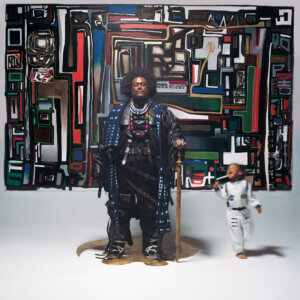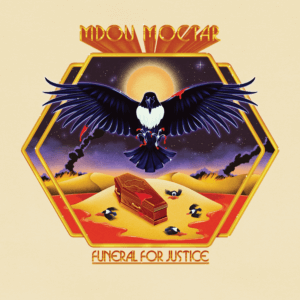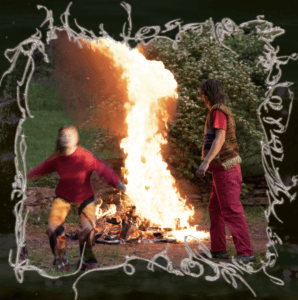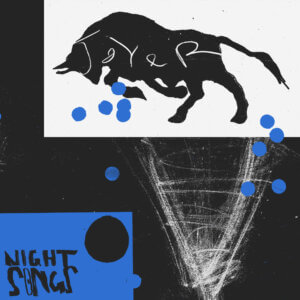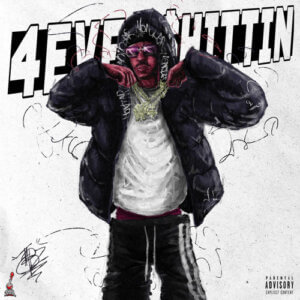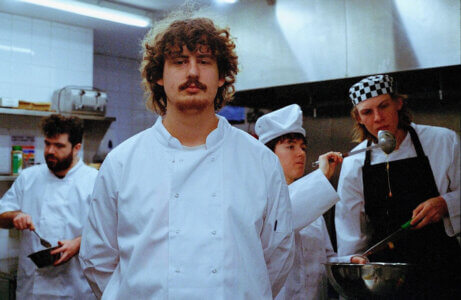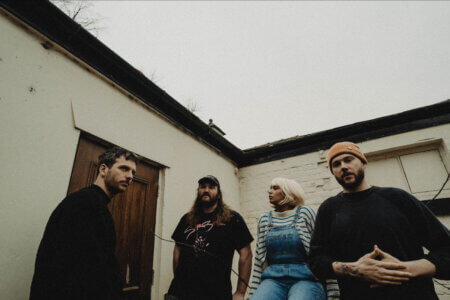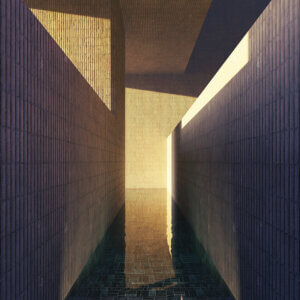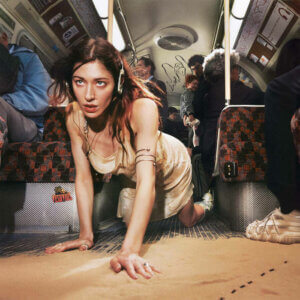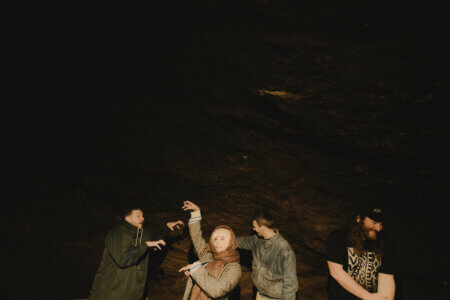Mandy, Indiana Are Finding Their Own Way
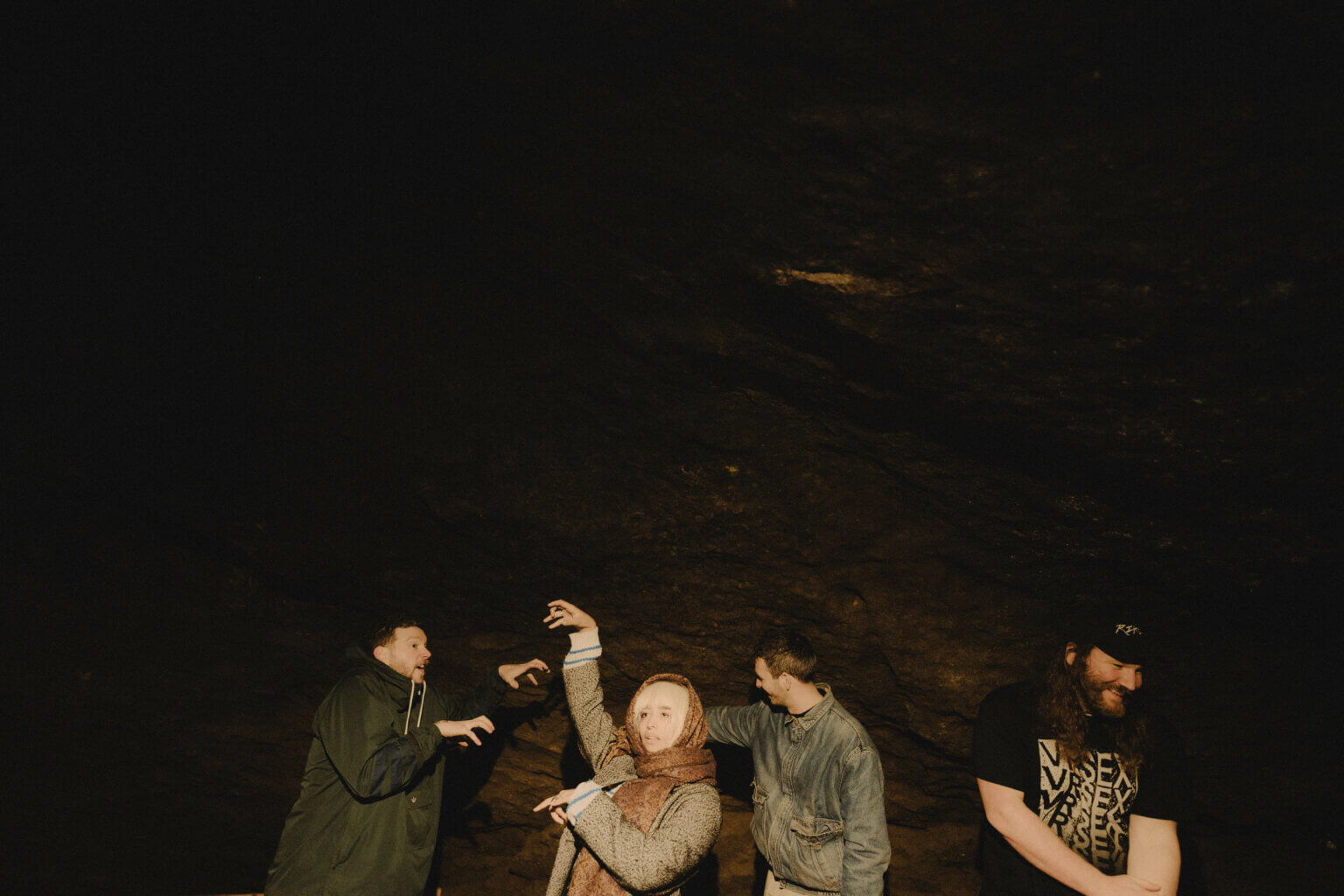
There are moments on Mandy, Indiana’s searing debut record I’ve Seen a Way, released via Fire Talk, where it feels as though the band have dropped you in the middle of a 1980s sci-fi movie only to unceremoniously displace you a few songs later to an even eerier space akin to an abandoned train station. In Mandy, Indiana’s nocturnal and ambiently claustrophobic sonic worlds, vocalist and lyricist Valentine Caulfield, in her native French, explores challenging topics and themes which elevate the intensity of their visceral sound.
Northern Transmissions spoke with Valentine Caulfield about the making of Mandy, Indiana’s critically acclaimed debut, which involved recording sessions in unusual locations such as caves and crypts, the inspirations behind her lyrics and her relationship with performing these brilliantly intense and invigorating songs live.
NT: Hey Valentine, it’s so nice to speak with you! I’ve been really enjoying Mandy, Indiana’s debut album I’ve Seen a Way. It’s gotten such a great reception from critics and fans since it was released. How have you and the rest of the band found the response?
VALENTINE CAULFIELD: It’s been great, it’s a bit mad, as well. I think I was definitely really worried that it wasn’t necessarily going to be received super well in the sense that, you know, we’ve never hidden the fact that we don’t make music that’s necessarily super accessible. We very much made the record that we wanted to make and for it to be received the way that it has been, was a bit baffling to me! I was genuinely really overwhelmed for a few days. I had to spend a couple of days at home in bed being like, “Oh, my God, what’s going on?”
But, no, it’s great because I think it’s very much a record that will probably bring listeners something completely different depending on the mood and setting that you’re listening to it. I’m genuinely amazed and so grateful that it’s been received in the way that it has been.
NT: I’m always curious to hear about the conversations bands have in the studio, especially when the music is instrumentally-focused and has an electronic foundation to the arrangements. That style, for me, can be very visual; you can picture the world these songs exist within. As a band, do you tend to talk about songs in a visual language when writing them?
VC: It mostly comes from Scott [Fair, guitarist and producer] because he very much writes, basically, all of the music and then with the rest of the stuff, we add those bits together. So, all the lyrics are me and then Simon [Catling, synths] and Alex [MacDougall, drums] appropriate the songs and make them their own, but the ideas are very much Scott’s and he’s someone who’s very visual in his approach to music. He enjoys using or having visual reference points when he writes.
As well, though, I think all of it comes from different places for all of us. Scott, naturally, definitely writes things in ways that evoke some things to him and then I take them in completely different directions. The end point is where all of our ideas and points of views congregate. Then, you know, the visual aspect to the songs will mean different things to each of us.
NT: I read that you recorded bits of I’ve Seen A Way in some very interesting occasions, notably a crypt, a cave and a shopping center. What were those experiences like?
VC: I can’t really speak for the cave and the crypt because I wasn’t actually there. Scott went, so when he tracked all of the drums for the album, he went down to Bristol. The drums are recorded, partly in Wookey Hole caves, which is just outside of Bristol, and also partly in a crypt which is in Bristol. Being in the cave, from how he described it, seemed like a horrible experience! I’m super claustrophobic, like I really wanted to go, but it didn’t make sense and I had to work. In the end, I’m really glad I didn’t because I don’t think I realized how deep they went into the world, or the earth! He said that they had to park quite far out and then carry all of the gear because, obviously, there was no gear there already set-up to record. They had to carry everything from where they parked to the entrance of the cave and from the entrance of the cave to the actual space where they recorded. The pathway, where they recorded, had like a lake or a bit of water and halfway through recording the drums a cave-diver came up, probably not understanding what was going on! And that is actually part of the inspiration behind “Love Theme (4K VHS)”.
The crypt was obviously a very different kind of environment, probably way less stressful in terms of getting together because in the cave they could only record for about two hours out of an eight hour day. The rest of the time was dedicated to carrying all of the gear, setting up the drum kit and the recording equipment whilst also making sure that there wasn’t water dripping on everything. It was a bit of a crazy idea and thankfully it really paid off because it could have been a terrible disaster!
Scott was saying, as well, that they couldn’t keep track of anything that they were doing because, even with headphones on, they couldn’t hear anything due to the reverb in the cave. So, there was a chance that they could have come out of that cave and when they listened back to the drums and said, “We can’t use any of this”.
Whereas, recording in the crypt was a lot easier and a lot more chill because they were able to track everything. The way Scott put it, there were tracks that came out as cave tracks, and then others that became obvious crypt tracks. Both environments impart something very different on the sound. Also, while they were recording the drums in the crypt, Scott had been playing around with just a microphone and some of the speakers and getting loads of really loud feedback. He realized that there was a meditation class happening upstairs and they’d been complaining about the absolute insane noise that he was making!
NT: Wow, that sounds so stressful and also fun! I was in Liverpool in February of this year and actually caught Mandy, Indiana performing at Future Yard on the closing night of Independent Venue Week. Your set was great, I was really struck by the energy and the intensity of the songs in a live setting. You’re a very captivating performer, that night you just seemed so immersed in the music as you came off the stage and into the audience. What is it like for you, when you’re performing to be in that intense zone with the music and share it with an audience?
VC: I think, very much like you said, I just immerse myself in it completely. That’s much easier to do when the audience is responding to what we’re doing and it’s a lot harder when people are obviously not into it. We’ve been really lucky that it’s only happened a few times where we’ve been in front of an audience who were a bit perplexed.
I just allow myself to let the music take over. It’s an intense and amazing experience. And when the people around you are clearly really into it as well, it’s so great. We played The Great Escape festival recently and the first night we played I cried. At some point, I was getting really emotionally into it and couldn’t stop delving deeper into the feelings. But it’s really, really fun and really cathartic. After that set in Future Yard, actually, a woman came up to me and she was like, “You know, I think if everyone got to do what you do, like once a month, we would need way less therapy.” So yeah, it can be a really intense and really fun experience. And when people are getting something out of it as well, it’s so rewarding.
NT: I was reading the english translations of the lyric sheet for the album and I think seeing the words heightens your impassioned delivery in the songs. You have “Drag [Crashed]” which examines themes of misogyny or ‘Pinking Shears’ which features the lines “I no longer want to wake up / When we let humans die / In the Mediterranean Sea/ In unheated buildings.” What is the songwriting process like for you, because Mandy, Indiana’s subject material, while it’s extremely important, is not exactly easy to delve into as an audience or writer.
VC: We started this band with the idea of using French, that was always going to be a part of our music. I think that really allowed me to approach writing lyrics in a way where I knew there would be an extra layer of work for listeners to do if they actually want to know what I’m talking about. That sort of gave me a level of freedom with what I talk about in the songs. It makes it really interesting for me, as well, to get people who have enjoyed watching you live and then later find out what I was talking about, and it’s so heavy and it’s so much. But, as a process, it’s all very organic. Scott will send me an idea or demo and I’ll listen to it over and over again until I get to a place where it brings something out of me. There’ll be something that I want to say with that music. So, it very much depends on my state of mind.
I don’t write lyrics first and then see if they fit onto something. Actually, funnily enough, we did that for one song on the album and that was the first time I’d ever done something like that. It very much depends on what’s going on in the world when I’m writing the song or what’s happening in my life or how I feel about certain things. With “Drag [Crashed]”, I just really needed to get those words out of me. They were a collection of things said to me or about me. Old men, when I was born, would tell my dad “Oh, you’re going to need to fend off the boys,” when I was an actual toddler, which is mind boggling!
As I said, the emotions that the music brings out of me, I just allow them to flow out into my lyrics. Then people find out what I’m talking about or they don’t, I suppose your experience of Mandy, Indiana’s music is going to be quite different whether you know what I'm talking about or not. But yeah, my lyrics are all things that I want to be able to say, and I like that some people actually take the steps towards actually understanding what I’m talking about.
NT: Again, when I was reading the lyrics for “2 Stripe”, I really liked the use of the fairytale style and how the narrative felt like it was from hundreds of years old but actually the societal structures as explored in the song are relevant today. I thought it was a really interesting way of dissecting society and how we treat one another. Tell me about the reason beyond using this type of structure for this song.
VC: We discussed different things I had been thinking of doing for different songs and I was really interested in writing a fairytale for one of the tracks. That was something that I wanted to do, to have a different idea and method of delivering the lyrics. We were really interested in looking into that. Actually, this was the song that I mentioned a moment ago, where I wrote the lyrics first. I wrote the fairytale, originally for “Love Theme (4K VHS)” but it didn’t work. That was supposed to be the fairytale. I tried to record it and it was just too long; it was clunky and I had to speak too fast. Scott suggested cutting some of the words out, and I was like, “I actually can’t because I’ve written a whole fairytale.” We set it aside for a while and then he brought me some demos. There was something there with the arrangement and I tried it out and it worked.
I was really interested in using that fairytale method to get out a tale that could resonate, or should resonate with people nowadays. It’s funny, there was a horrible review of the album, it was the only bad review that we ever had, from a French blog, and the guy was like, “Her songwriting is terrible, her lyrics are terrible! What is this? What’s going on here?” Of course, I can get why some people would think it’s a bit on the nose. But “2 Stripe” truly has one kind of endgame only and it’s to pass on that message of how people are treated by people in positions of power. You don’t have to like the song, that’s absolutely fine if you don’t. I just wanted to, instead of doing what I’ve done before, like on “Pinking Shears”, for example, where I’m very openly talking about creating those political systems for ourselves and then allowing them to strip us of our humanity. We’re watching people die because they can’t afford to heat up their homes. I’ve lived in the UK for 10 years, and I guess, instead of just openly being a socialist in my lyrics, I’m going to write a little fairy tale and be like, ‘Hey, you know, those people who are literally oppressing us, there’s actually a lot more of us.does it a lot more of us.’
But, you know, it’s a tale as old as time and maybe with something like “2 Stripe” people will take a second and realize that we’re just allowing these things to happen and repeat.
Order i’ve seen a way by Mandy, Indiana HERE
Latest Reviews
Tracks
Advertisement
Looking for something new to listen to?
Sign up to our all-new newsletter for top-notch reviews, news, videos and playlists.
